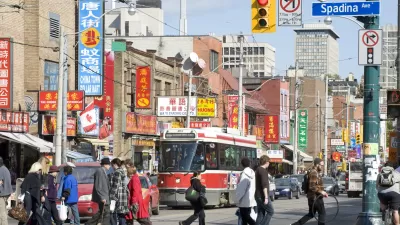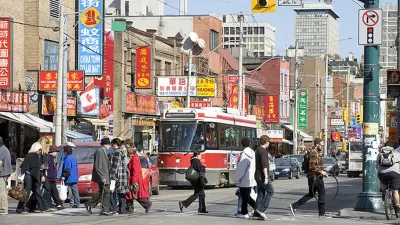The federal government's controversial decision to scrap Canada's long-form census in 2011 and replace it with a voluntary household survey is coming home to roost, as cities across the country dismiss its skewed results.

"Weaknesses in the most recent national census mean the City of Ottawa is treating the data skeptically and relying more on its own sources of information about the city’s population, says the city’s chief urban-planning statistician."
"Decrying the mandatory long-form census as an invasion of privacy, then industry minister Tony Clement, who oversaw Statistics Canada, replaced it with a voluntary 'National Household Survey.' Since filling out the survey in 2011 was optional, the results are necessarily skewed: there’s no way to be sure if any particular group of people is more or less likely to choose to fill out the form, so there’s no way to know whether the survey accurately represents Canada’s actual population," writes David Reevely.
According to Anna Mehler Paperny, the city of Toronto has already decided it will not use the survey results as a tool for historical comparison. "Toronto, like other cities and a multitude of government and private organizations, relies on data from the long-form census to get a sense of where the community’s going."
"At least, it used to."
"Now, every city department – from planning to transit, traffic and social services – will need to find another way to figure out how Toronto’s communities are changing."
FULL STORY: Census changes a problem for city’s planners

Planetizen Federal Action Tracker
A weekly monitor of how Trump’s orders and actions are impacting planners and planning in America.

Map: Where Senate Republicans Want to Sell Your Public Lands
For public land advocates, the Senate Republicans’ proposal to sell millions of acres of public land in the West is “the biggest fight of their careers.”

Restaurant Patios Were a Pandemic Win — Why Were They so Hard to Keep?
Social distancing requirements and changes in travel patterns prompted cities to pilot new uses for street and sidewalk space. Then it got complicated.

Platform Pilsner: Vancouver Transit Agency Releases... a Beer?
TransLink will receive a portion of every sale of the four-pack.

Toronto Weighs Cheaper Transit, Parking Hikes for Major Events
Special event rates would take effect during large festivals, sports games and concerts to ‘discourage driving, manage congestion and free up space for transit.”

Berlin to Consider Car-Free Zone Larger Than Manhattan
The area bound by the 22-mile Ringbahn would still allow 12 uses of a private automobile per year per person, and several other exemptions.
Urban Design for Planners 1: Software Tools
This six-course series explores essential urban design concepts using open source software and equips planners with the tools they need to participate fully in the urban design process.
Planning for Universal Design
Learn the tools for implementing Universal Design in planning regulations.
Heyer Gruel & Associates PA
JM Goldson LLC
Custer County Colorado
City of Camden Redevelopment Agency
City of Astoria
Transportation Research & Education Center (TREC) at Portland State University
Camden Redevelopment Agency
City of Claremont
Municipality of Princeton (NJ)





























